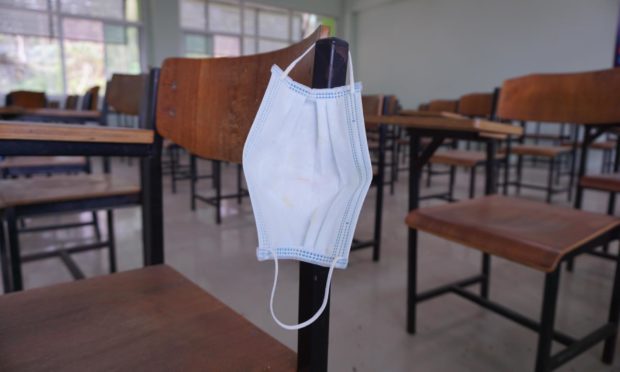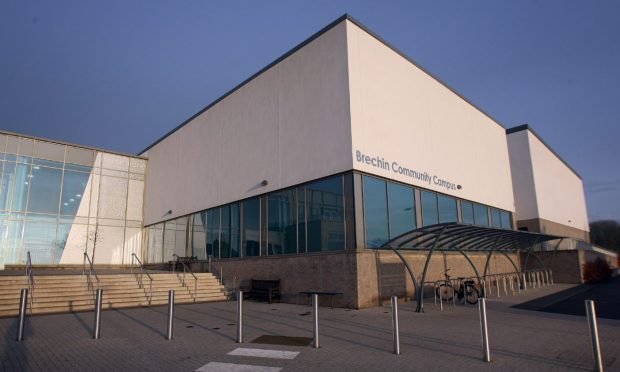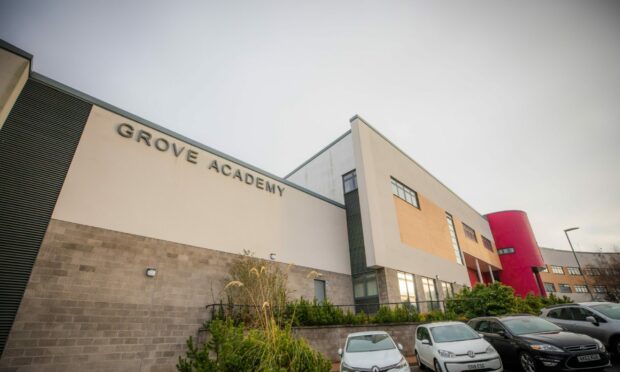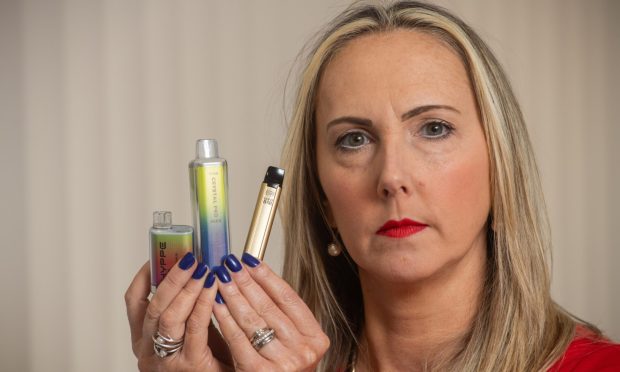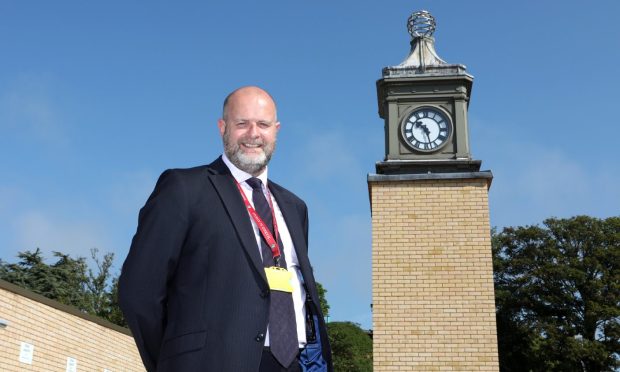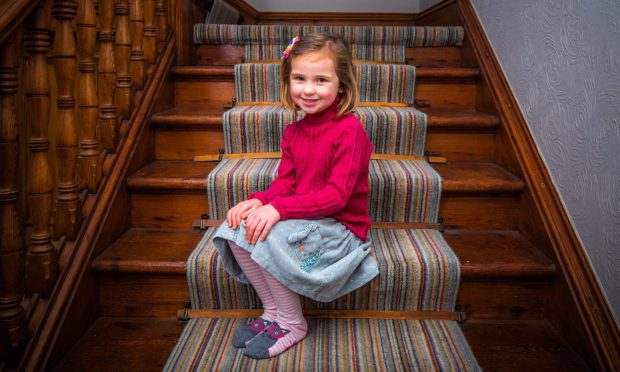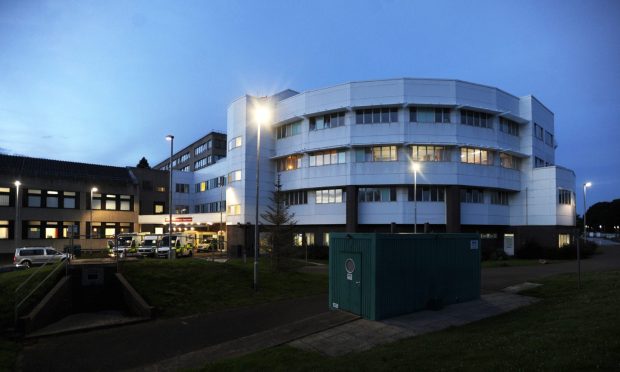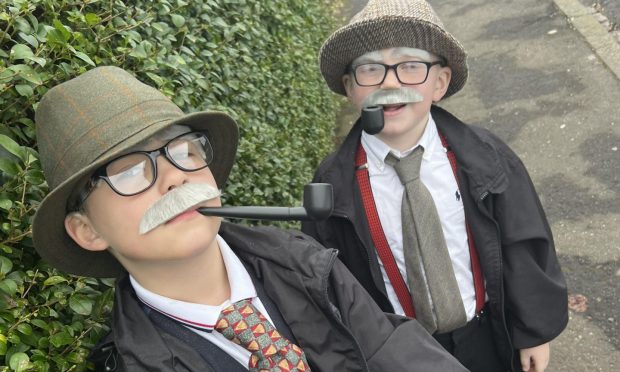Parents of children with health issues and disabilities have told a Holyrood committee of the distress of wearing face masks in school.
Some say youngsters come home feeling sick or feel like outcasts due to the requirement for secondary school pupils to wear coverings in class in some areas.
Concerns about the use of face masks, particularly for children with hearing or respiratory problems, were relayed to the Scottish Parliament’s equalities and human rights committee as it continues its inquiry into the impact of the coronavirus pandemic.
Parents group UsForThem Scotland, which has gathered views of some families adversely impacted by the need for face masks in secondary schools, has made a submission to the committee.
It quotes one parent talking of her asthmatic daughter: “She comes home saying she feels as if she is drowning at school, feels sick and can’t concentrate.”
Who must wear face masks?
Guidance that S4 to S6 pupils should wear face masks in class in areas with level three and four restrictions – including Dundee, Angus, Fife and Perth and Kinross – was issued by the Scottish Government at the end of October.
Schools in Dundee, Angus and Perth and Kinross have also asked S1 to S3 pupils to wear or consider wearing coverings in class.
Below level three face masks should be worn in communal areas of school buildings, such as corridors and toilets.
UsForThem Scotland organiser Jo Bisset said the group’s submission included only six “clear-cut” examples of human rights put at risk but these were the tip of the iceberg.
She said: “These are real, often heart-breaking accounts of children whose lives have been made a misery because of this policy.
These are real, often heart-breaking accounts of children whose lives have been made a misery because of this policy.
Jo Bisset, UsForThem Scotland
“It seems that even when exemptions are in place many schools aren’t aware of it and it’s having a severe impact.
“This could all have been avoided if children were spared the need to wear face coverings in school.”
UsForThem was established to campaign for the reopening of schools fulltime when it was proposed that pupils would return parttime in August.
Ms Bisset said: “Parents have been very grateful that the Scottish Government has kept schools open through the pandemic.
“Having been so committed to that, we believe the next step should be to remove the mandatory wearing of face masks for children.”
What have parents said?
Parent one: “My son is exempt, and wearing a mask causes him significant distress due to his health history, including two operations as he has 90 per cent airway obstruction, and receives regular respiratory physio to retrain his diaphragm.
“We’ve had a few issues with face masks – but it is hard for a nine-year-old to explain to people in a class where his teacher has told him wearing masks saves lives and keeps everyone safe. He thinks he will harm others in public by not wearing a mask.
“My son has tried to wear a face covering but it genuinely distresses him, and he is only starting to recover from years of breathing difficulties. He feels like he’s an outcast.”
Parent two: “My daughter was being questioned each morning by the deputy headteacher about not wearing mask even though I’ve told them she is exempt.”
Parent three: “Our daughter has asthma. She comes home saying she feels as if she is drowning at school, feels sick and can’t concentrate.
“I have an exemption for her but she won’t use it. If she doesn’t wear or forgets to wear a mask she is told to put one on. She says it’s easier to just submit.
“I am at the end of my tether with this.”
Parent four: “My child has hearing difficulties. Communication is very difficult.”
Parent five: “My 12-year-old son has never worn a mask and is exempt, but they keep asking him where his mask is. He’s never said the word bullying, but he does say it’s annoying that they keep asking.”
Parent six: “The school already know about my son’s hearing issues as they received guidance from the school nurse years ago about him needing to sit at the front of the class.
“He’s so quiet that he’s been too embarrassed to speak to his teachers about it in front of his peers.”
What do others say?
However, the National Deaf Children’s Society claimed the “knee-jerk” policy ignored the needs of deaf children and up to 50 children across Dundee could be struggling to understand teachers and classmates as a result.
Public health expert Professor Linda Bauld told us that as many young people are asymptomatic with the virus, face mask in classrooms were a “good idea”.
Although uncomfortable, the risks, she said, were minimal for children who do not have underlying health conditions or are vulnerable.
Announcing face coverings in classrooms as a package of amendments to the guidance on school safety, Deputy First Minister John Swinney said: “It is vital that all the measures are followed rigorously in schools.
“Doing that – together with the collective efforts of all of us across wider society – will help to ensure that schools can safely remain open.”
The inquiry
UsForThem Scotland believes ‘enforced’ wearing of masks in schools risks infringing human rights of young people, especially those who are vulnerable, have hearing loss or autism or conditions such as asthma.
The parliament committee agreed in April to hold an inquiry into the impact of Covid-19 on human rights.
It is identifying groups and individuals disproportionately impacted by the pandemic and the measures taken, and how the Scottish Government and public bodies can minimise the negative effects on equality and human rights.
